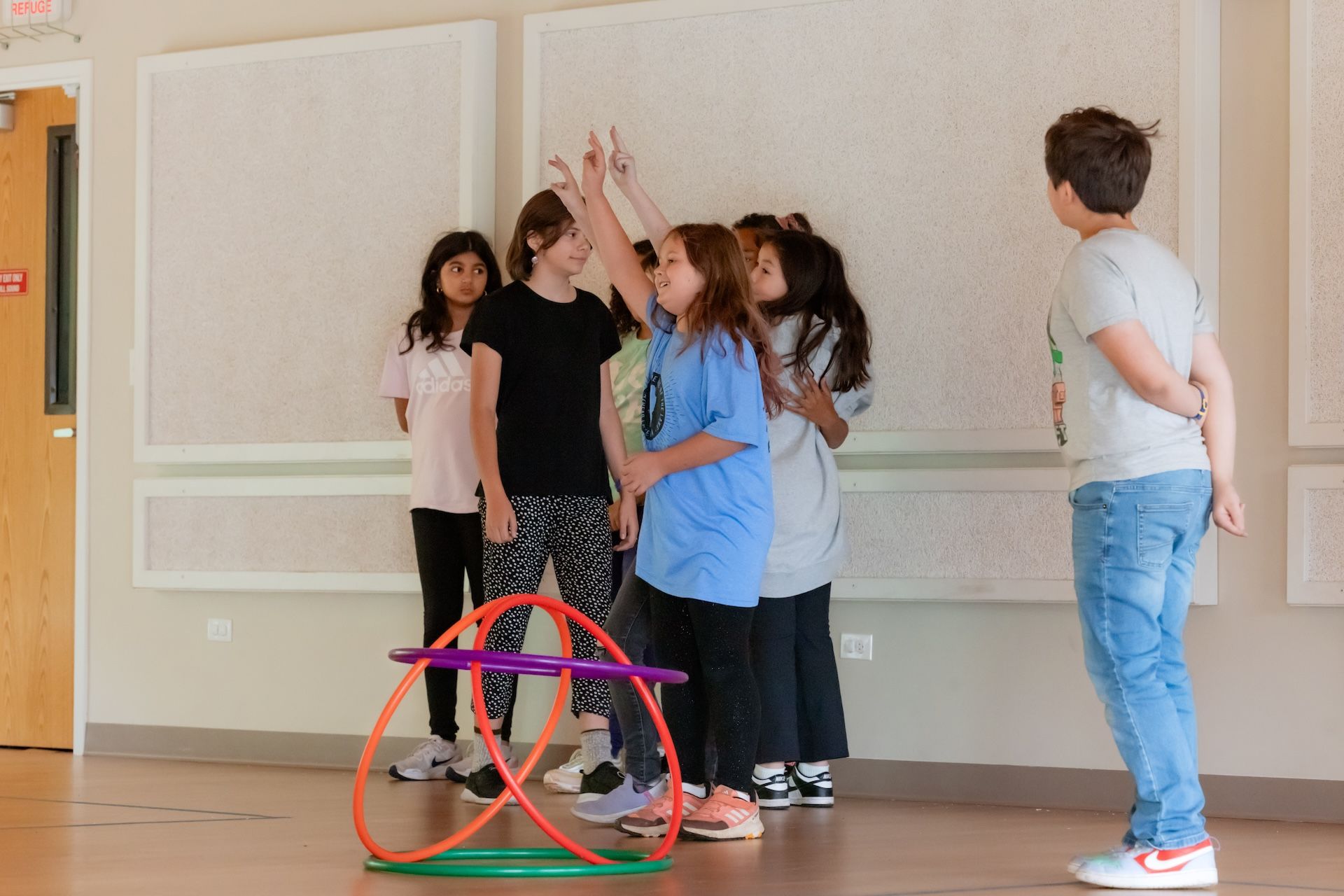A Summer Path to Independence

Has your child ever vehemently resisted the idea of summer camp? Perhaps between not knowing anyone and having to try new things, they may think the experience is just short of sheer torture!
In the face of our kids’ resistance, it can be hard to insist on our children’s engagement in a summer camp experience. But it’s important to remember the very real benefits of having broader social experiences, stretching in new ways, and trying new skills.
Offering Clear Support
In these moments when our children resist, it’s important to both acknowledge their feelings while also staying firm about what will happen. Often they have an underlying desire to take on a new challenge, and maybe are even experiencing some frustration, perhaps with their own fears and uncertainties.
The process is a bit like what happens with infants on the cusp of crawling. They rock back and forth on their hands and knees, sometimes crying in exasperation. They want to crawl, to move toward some interesting object on the floor, but seem to feel unable to make that first move.
A Path Toward Independence
From birth, our children are on a path toward independence. When they are very young we can clearly see the stages, from being held in arms to sitting, then from sitting to crawling to walking. We witness them begin to babble and then talk. With each new skill, our children develop self-confidence and learn what they are capable of achieving.
The more children have the opportunity to confidently explore their environment, the more they master developmental tasks and establish new skills, all of which help to support a widening sense of independence.
The urge to become independent is strong. As adults, we can be supportive of this natural process, even when our children are entering into activities that feel challenging and even initially unattainable.
Letting Go
If you are exploring summer camp as a step toward independence, be sure to check out Dr. Michael Thompson’s book, Homesick and Happy: How Time Away from Parents Can Help a Child Grow. Thompson clearly outlines how important it is for our children to have their own experiences, especially those that are not under parents’ purview.
This letting go can take great effort for both children and their parents. “Every child has to practice being independent,” reminds Thompson, “and every parent has to practice letting his or her child be independent.”
In order to achieve independence, children need to be able to experiment with what they can do and be able to accurately judge their own limitations and abilities. The summer camp experience, whether overnight or day programming, offers children this chance to push their limits, without worrying about varied reactions from parents.
Their Own Experiences
Thompson conducted hundreds of interviews with campers and former campers for his book, Homesick and Happy, How Time Away from Parents Can Help a Child Grow. Overwhelmingly, children described how their camp experiences helped them realize how strong and competent they really are. Thompson reminds us of the importance of being away from home and out of parents’ loving, yet sometimes overbearing, watchful eye. “When children are away from their parents, they do not have to view their own life and achievements through the lens of my-athlete-father-standing-on-the-sidelines-watching-me or my-mother-is-worried-that-I’ll fail. When a child is on his own, the experience is his alone, the satisfaction belongs only to him and he does not have to filter it through what his parents think and feel.” When in a summer camp program, children can fail, learn, and succeed on their own terms.
With an engaged and expanded learning environment that is often extremely experiential, camps help our children realize new abilities and different ways to deal with challenges, which helps them feel more competent and capable. As a result, they build up their problem-solving skills and sense of agency.
Opportunities Abound
In addition, our children get to form healthy new relationships, with peers and friends, as well as adults who are not their parents. In a summer camp atmosphere, children get to practice social skills in a relaxed environment and with adult leaders who can offer different kinds of guidance.
In addition to introducing new people and activities, camp experiences help children learn about their strengths, weaknesses, likes, and dislikes, all of which help them form a strong sense of identity. Finding their strength, as well as making hard-won progress in areas of difficulty, helps children build self-esteem and identify worthwhile hobbies and interests that they can continue to pursue as they get older.
Often children’s response after the camp experience speaks to their awareness of claiming their space and being aware of a parental reaction. For example, one eight-year-old, after the first day of camp, told her camp counselor: “Don’t tell my mom, but summer camp is really fun.”
This summer, let’s offer our children the opportunity to face something that might at first feel uncomfortable, but that offers them so much. You can check out the summer camp we offer at our school by visiting I.D.E.A.S. Summer Camp Louisville.






